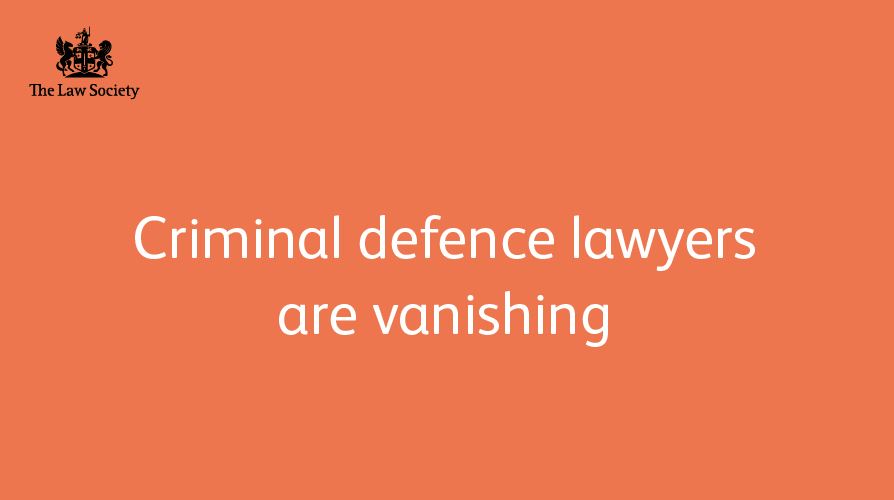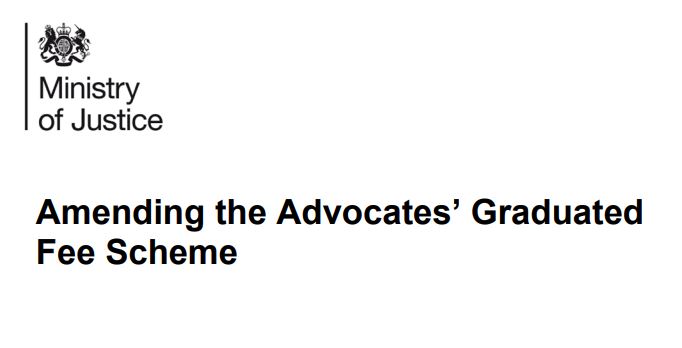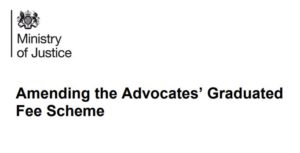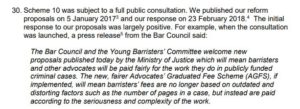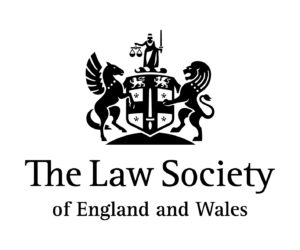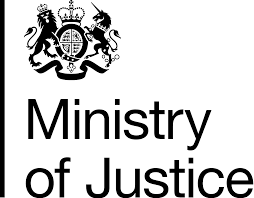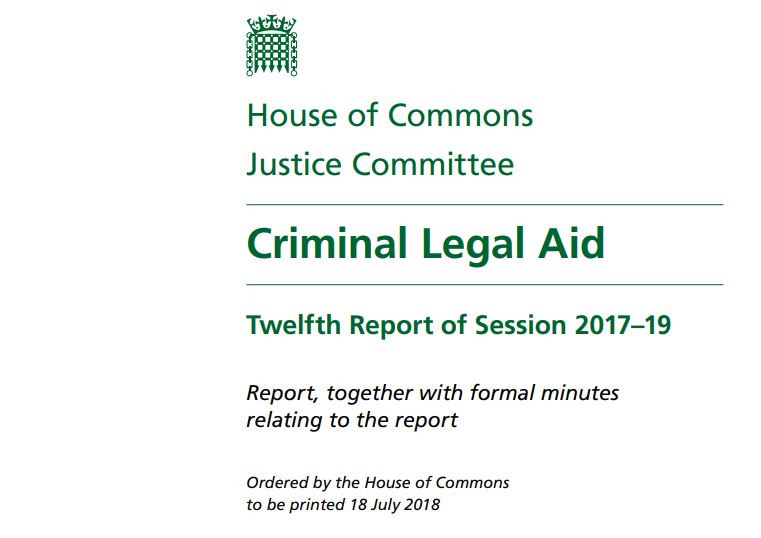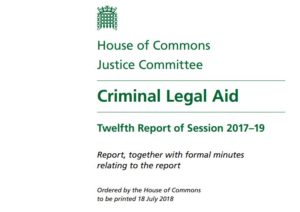 The Ministry of Justice is consulting on some minor tweaks to the current legal aid payments for Crown Court litigation and advocacy. The full consultation and supporting documentation can be found here.
The Ministry of Justice is consulting on some minor tweaks to the current legal aid payments for Crown Court litigation and advocacy. The full consultation and supporting documentation can be found here.
Partner and solicitor advocate Andrew Wesley was one of only 46 solicitors who chose to take part in seven focus groups around the country. At the Nottingham meeting, several firms were represented by experienced practitioners, but many firms did not send a representative and their voices were not heard.
33 barristers took part in 4 similar focus groups and expressed their opinions on a range of matters relevant to the consultation. Unfortunately, and perhaps unsurprisingly, they made a case for an increase in fees based on the inadequacy of preparation by solicitors in relation to a whole range of issues.
The general tone of their feedback was that ‘good solicitors’ (or litigators) were few and far between and the independent bar were having to shoulder the burden of what had traditionally been areas for solicitors.
Solicitors criticised by the Bar
The first criticism came within the context of cracked trials, where the work undertaken by more junior counsel was said to be ‘front-loaded’ in terms of the duration of a case, and ‘included litigation aspects’. A damning conclusion was offered that ‘poor quality [and] limited solicitor work was said to drive front loading’.
A second criticism relates to the time spent analysing unused material. This was traditionally a job carried out by the solicitor or litigator who would request the appropriate material and then consider it. Defence statements would be drafted by the solicitor in an attempt to secure disclosure of this additional material.
Unfortunately, last year one barrister reported ‘We’re doing solicitors’ jobs for them as well because they don’t send along their support services, and then we have to do all the returns as well. We have to email people in the middle of the night to tell them what’s been going on during the day. It’s very time consuming.’
This appears to be a widely held view as ‘barrister participants reported that previously solicitors did a thorough job examining the unused material and provided the barristers with details of the areas that they needed to look at. However increasingly, in their view due to financial pressures, solicitors were doing this less and less and leaving it to the barristers.’
Are there any good solicitors left?
The barristers surveyed were able to identify ‘good solicitors’ who still undertook this work, but they are, apparently, few and far between. In all four barrister focus groups the view was expressed that unused was not being considered by solicitors as it should be. Barristers said that ‘this was caused by solicitors being “so overburdened with work” and having so much pressure to make turnover”.
Expanding further, counsel offered this opinion – ‘[Solicitors] earn so little in the magistrates’ court that the litigators’ fees for these cases are just a sort of bounty for them. They don;t do any work on them. It’s those fees that allow them to keep their practices running, so they just punt it all off to the barristers who then have to do all the work on it.’
Unsurprisingly, solicitor participants stated that they did review unused material. It was often a key part of the case and a dereliction of their professional duties if they did not. This may be a result of only ‘good solicitors’ choosing to take part in the consultation exercise.
VHS Fletchers’ attitude to Crown Court cases has not changed. We have Crown Court preparation undertaken by dedicated Crown Court litigators, reflecting the fact that the preparation of Crown Court cases involves a particular skill set. Our litigators attend court, whether in support of independent counsel of in-house barristers of solicitor advocates.
Other local firms have adopted the same attitude, and choose to employ litigators or send solicitors in support and who properly prepare cases, whether for trial or plea.
Ministry of Justice presented with incorrect impression?
However, the reality remains that the barristers surveyed are either misrepresenting the lack of work that solicitors undertake on cases, or they are telling the truth about a significant number of firms. If it is the latter, the Ministry of Justice is getting a skewed version of the professions, but will no doubt make decisions in relation to litigator and advocates’ fees accordingly.
If the truth is that across the board solicitors and litigators are doing less then why would the Ministry of Justice pay us more? If the work we as solicitors are doing is actually reducing then why would we expect to be paid more?
It seems clear that the solicitors who take part in these focus groups are the ones that do the work expected of them and within the existing fee structure. They then take the time to attend these meetings in their own time to try and encourage proper payment for work properly done.
While one effect of consultation documents such as this may be to divide the profession, counsel may be better served complaining about the lack of work being undertaken by specific firms to the firm, Legal Aid Agency or SRA, rather than arguing for a financial benefit as a result of the inaction.
We are talking about Keres & Co aren’t we?
The behaviours explained of by counsel in these focus groups appear to very much match those highlighted by the Secret Barrister by the ‘fictional’ firm Keres & Co.
Everybody knows a Keres & Co (or two) but it appears that nothing can be done about them. The activities aren’t picked up on peer review or Legal Aid Agency Audit. The SRA aren’t interested without ‘evidence’ and of course evidence coming from disgruntled clients (who may well have convictions) may not be particularly persuasive.
We have now, however, reached a point where not only are these firms taking work from those solicitors that will do the work, but are now affecting our ability as a profession to negotiate proper fee increased that reward a job well done. They have given the Independent Bar ammunition to use in an attempt to secure a greater share of the ever shrinking legal aid pot.
Tell the public what good solicitors should be doing for them?
Those ‘good solicitors’ left need to publicise what we do and work with counsel to publicise what should be expected of a litigator. This will allow clients a better insight into what their solicitor should be doing for them, improve the lot of the barrister, and help secure a financial settlement that is fair to both halves of the profession.



